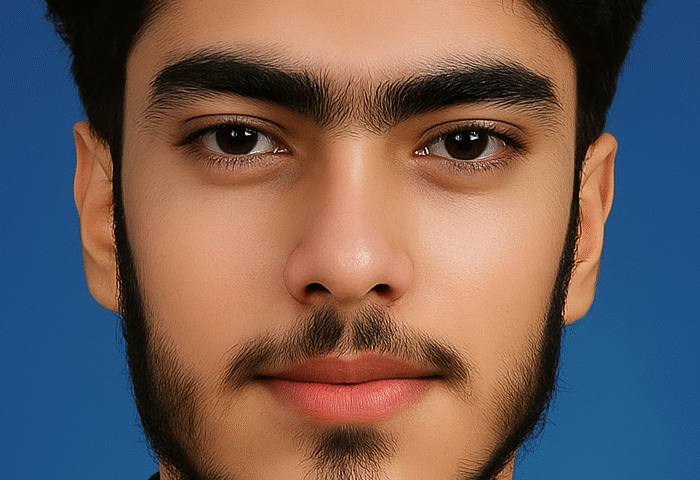By: Aubaid Ahmad Akhoon
“The month of Ramadan is the month in which the Quran was sent down as a guidance for mankind and as clear signs that show the right way and distinguish between right and wrong.” – Quran 2:185
Ramadan is a blessed month that holds tremendous value and status for believers. It is a time to break free from materialism and focus on the Hereafter. Two months prior to Ramadan’s arrival, prayers are offered for its attainment, and the month itself is named “scorching” due to the scorching heat when it first appeared in Islam. Fasting during this month is mandatory for believers, and it aims to purify and service humanity, removing the deficiencies that arise from the fog of the world. Fasting helps to instill the habit of controlling desires and impulses, promoting taqwa, and weakening the urge to engage in sinful activities. It is also a way to imitate the purity of angels who always obey Allah’s commands. Fasting requires self-discipline and endurance, and it is said to be half of patience. Ramadan is a time for reflection, renewal, and seeking Allah’s love and salvation, transforming hearts and minds rather than changing daily routines.
Ramadan is a chance to build your emaan. Let’s prepare ourselves to replenish our imaan. “
The moon of Ramadan does not come alone, it generally accompanies heaps of bliss and favors. May we as a whole pay the value for
having this respectable month.
The Prophet Muhmmad (pbuh) said : when the month of Ramadan starts, the gates of the Heavens are opened and the gates of Hell are closed and the devils are chained. Sahih-Al Bukhari Fasting book 30, hadith 9 Sahi Muslim the book of fasting
Ramadan is a month of spiritual significance for Muslims all around the world. It is a time to fast and engage in acts of worship, with the goal of attaining piety and developing a deeper connection with Allah. While fasting and performing Taraweeh prayers are important components of Ramadan, they are only a part of the bigger picture. The true objective of Ramadan is to cultivate a sense of accountability towards Allah and prepare for the Hereafter.
Ramzan A Month Of Piety & Salvation
To attain piety in Ramadan, Muslims should aim to increase the amount of worship they engage in. This can include reciting optional prayers that they may not perform in other months, This can include reciting nawafil (optional) prayers that they may not usually recite on other months. Additionally, they can recite four rakats of Tahajjud before Sehri and some rakats of Chasht if they sleep after Ishraq and engage in as many voluntary acts of worship as possible.
Abundance of recitation of the Holy Quran
Ramadan is a best way to acquire knowledge
Reciting the Quran abundantly is another crucial aspect of Ramadan. Muslims should strive to read the Quran daily and reflect on its teachings. The Holy Quran was revealed to Prophet Mohammed (PBUH) during this month, and it is a comprehensive book of all the principles and branches of religion.
Qur’an is an enlightened leader, a precise balance, a strong preacher, an informed and insightful leader, a dark light, a strong orator and it is a mercy to the worlds and a book that separates truth from falsehood. It is also a collection of historical, political, military, educational, jurisprudential, ethical, doctrinal, natural, hygienic, industrial, philosophical, literary, mathematical and other sciences and subjects.
History has shown that even if one tries to extinguish the light of the Qur’an, diminish its excesses, distort and change it or cast doubt on its characters, one will not succeed and never succeed. Enemies of Islam and misguided people despite all their tricks, deceptions and efforts for hundreds of years, have not been able to extinguish the light of the Qur’an in the slightest, and there will never be the slightest change in the word of Allah.
In the lives of all the religious leaders, the use of the Holy Qur’an is very much seen, but with the arrival of the month of Ramadan, the routine of recitation would increase exceptionally.
Therefore, we also have to increase the amount of recitation in this blessed month as compared to normal days. The common man should also recite at least three verses daily, so that at least three verses of the Holy Qur’an are recited throughout the month.
By reciting and understanding the Quran, Muslims can gain a deeper understanding of Islam and its teachings.
“In Ramadan, we learn to control our desires, practice self-restraint, and develop a sense of empathy and compassion for those in need.”
In addition to engaging in acts of worship, Muslims should also strive to give to charity and help others during Ramadan. This can include giving Zakat or Sadaqah to those in need, donating to charitable organizations, and engaging in acts of kindness towards others. By doing so, Muslims can develop a sense of empathy and compassion towards others, which is a core principle of Islam.
“Ramadan is about breaking bad habits, not putting them on pause “
Controlling one’s behavior and speech is another important aspect of attaining piety in Ramadan. Muslims should strive to be patient, kind, and compassionate towards others. They should avoid engaging in gossip and negative speech, refrain from committing sins, and hold themselves accountable for their actions.
Fasting during Ramadan teaches self-control and discipline and provides numerous health benefits for the body and mind. It is not just about abstaining from food and drink but also refraining from sinful behavior and bad habits.
Laylat-ul-Qadr
One of the most important aspects of Ramadan is Laylat-ul-Qadr, a night that is more blessed than a thousand months. Muslims spend this night in prayer and meditation, seeking forgiveness and salvation. Unfortunately, some people treat it more like a festival than a night of worship, which is not the intended purpose.
Acquiring knowledge about Islam is another essential aspect of Ramadan. Increasing our understanding of our faith can strengthen our belief and increase our emaan. Ramadan is a time to focus on the basics of religion, such as belief in Tawheed, Prophethood, and the Hereafter.
It is narrated on the authority of Ibadah bin Samath that the Messenger of Allah, (Pbuh) , said: That Shab-e-Qadr is the odd night out of the last ten nights of Ramadan, 21st, 23rd, 25th, 27th or 29th (Musnad Ahmad).
Hazrat Abdullah bin Abbas (RA) said: The Messenger of Allah (Pbuh ) said: Look for it in the last ten nights of Ramadan when there are nine days left or seven days or five days left till the end of the month (Bukhari). ByMost of the scholars have taken this to mean that the Holy Prophet meant odd nights.
It is narrated from Hazrat Ayesha that the Prophet (Pbuh ) said: Look for the night of Qadr in the odd night of the last ten nights of Ramadaan. (Bukhari, Muslim, Ahmad, Tirmidhi)
Hazrat Ayesha said: I asked the Holy Prophet (Pbuh ): O Messenger of Allah! What should I do if I find out Shab-e-Qadr Prophet said: Recite this prayer:
اَاَللّھُمَّ اِنَّکَ عَفُوُ ٗ کَرِیْمُ ٗ تحِبُّ الْعَفْوَ فَاعْفُ عَنَّا
“O Allah! You are the Forgiver. If you like to forgive, forgive me.”
Ramadan is not just about changing our schedules; it is about changing our hearts. The ultimate goal of fasting is to attain piety, which requires more than just abstaining from food and drink. It involves cultivating obedience to Allah’s commands, suppressing the desires of the flesh, and emulating the purity of the angels. Praying for oneself, loved ones, and the world of Islam during Ramadan is an excellent way to seek Allah’s forgiveness and blessings.
“Ramadan is the month of blessings. Whose beginning is mercy, whose middle is forgiveness, and whose end is freedom from fire.” – Prophet Muhammad (Pbuh)
Bottom line : attaining piety in Ramadan requires a concerted effort to increase acts of worship, recite the Quran abundantly, give to charity, and control one’s behavior and speech. By doing so, Muslims can deepen their understanding of Islam, become more faithful, and develop a stronger connection with Allah.
As the month of Ramadan nears, We await its arrival with cheers, A time of blessings and grace, A chance to seek Allah’s face.
Forgiveness and mercy abound, In this month, a treasure found, Allah’s blessings in great measure, Overflowing with divine pleasure.
Words cannot do justice to express, The inner peace and spiritual caress, That Ramadan brings to our soul, Filling our hearts with a glow.
O Ramadan, we eagerly await, The arrival of your blessed state, May we be guided on the path of right, And experience the joy of this holy sight




